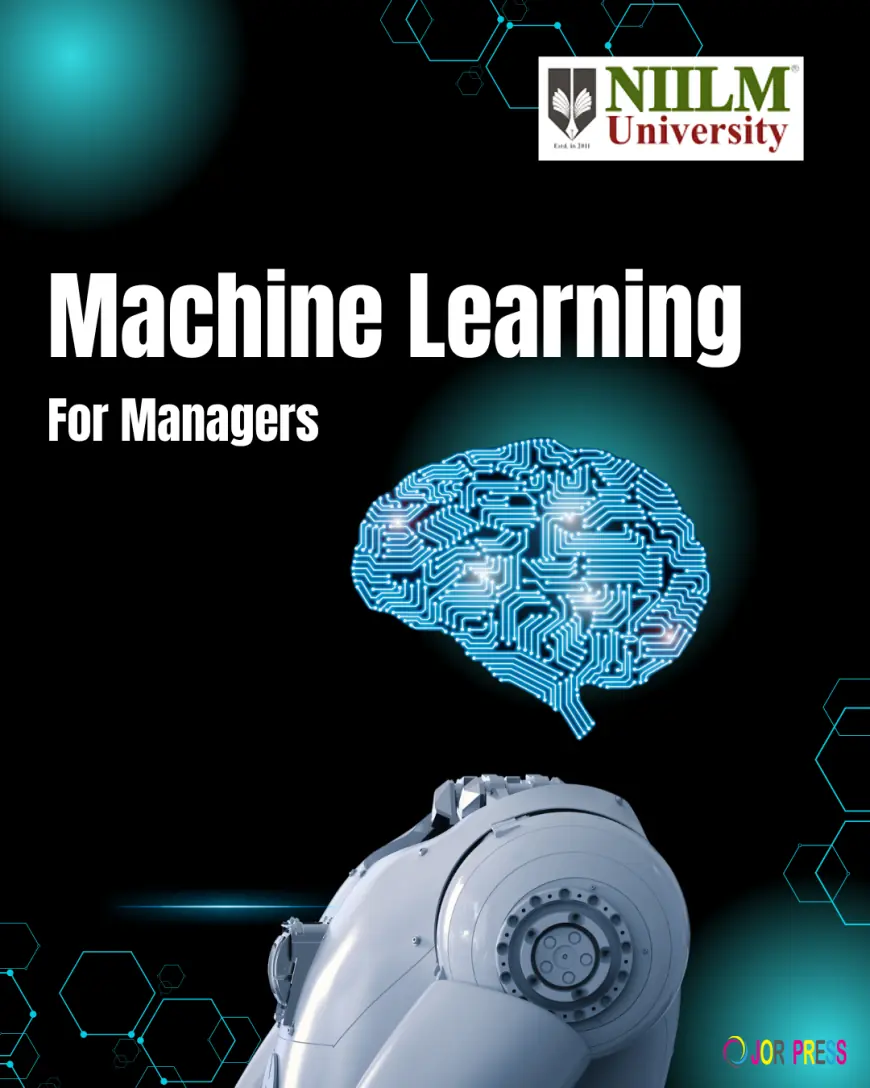Machine Learning for Managers: Transforming Leadership Through Data-Driven Insights
Explore how machine learning empowers managers to make smarter business decisions. Learn its impact, benefits, and how a data analytics in business degree builds essential leadership skills.

Introduction: The New Era of Smart Management
In today’s digital age, business leaders are expected to make faster, data-backed, and more accurate decisions. The competitive landscape no longer rewards instinct alone—it rewards intelligence derived from data. This is where machine learning for managers becomes a transformative concept.
Machine learning (ML), a branch of artificial intelligence (AI), empowers managers to analyze data, recognize trends, and predict outcomes. For modern leaders, understanding ML isn’t just a technical skill—it’s a strategic advantage that reshapes how organizations plan, operate, and grow.
Understanding Machine Learning for Managers
At its core, machine learning refers to the ability of computer systems to learn and improve from experience without explicit programming. For managers, this means they can harness ML tools to gain valuable insights from vast datasets—something impossible through traditional analysis alone.
For instance, machine learning algorithms can identify customer behavior patterns, forecast demand, detect fraud, and even predict employee turnover. Managers can then use these insights to make proactive decisions, design better marketing campaigns, optimize supply chains, or enhance customer service strategies.
Therefore, machine learning for managers is not about coding or developing algorithms—it’s about leveraging ML outputs to guide strategic business choices.
Why Managers Must Embrace Machine Learning
1. Data-Driven Decision-Making
Machine learning turns raw data into actionable insights. With the right ML models, managers can quickly interpret business trends, evaluate risk, and predict outcomes. This allows for smarter, faster, and evidence-based decision-making.
2. Improved Forecasting and Planning
From financial planning to resource allocation, ML helps in forecasting future trends with remarkable accuracy. Whether predicting sales, market fluctuations, or customer behavior, managers can minimize uncertainty and prepare for the future more confidently.
3. Enhanced Customer Understanding
Customer-centric management requires deep insights into preferences and behaviors. ML-driven analytics helps managers personalize services, improve user experience, and increase satisfaction. Businesses that leverage these insights often see higher retention and loyalty rates.
4. Operational Efficiency
Machine learning helps managers streamline operations by automating repetitive tasks, optimizing workflows, and reducing costs. It enables leaders to focus more on strategic growth rather than operational micromanagement.
5. Risk Management
In an unpredictable business environment, ML models can detect anomalies and alert managers to potential threats—be it financial fraud, system failures, or supply chain disruptions—before they escalate into serious issues.
Integrating Machine Learning in Managerial Roles
The integration of machine learning into managerial functions can take multiple forms:
-
Marketing Management: Predictive analytics helps in understanding target audiences, optimizing ad spend, and forecasting campaign outcomes.
-
Human Resources: ML can analyze employee data to predict turnover, measure engagement, and improve recruitment efficiency.
-
Financial Management: ML-driven tools detect fraudulent activities, forecast revenue, and assist in budget planning.
-
Operations Management: Smart inventory systems and demand forecasting tools enhance supply chain efficiency.
The managers of tomorrow need to know how to interpret and act on these machine-generated insights rather than rely solely on intuition.
Bridging the Gap: Learning Machine Learning as a Manager
The challenge many managers face is understanding how machine learning fits into their existing roles. The solution lies in education—particularly programs that combine business knowledge with data science skills.
Pursuing a data analytics in business degree can be an ideal way to bridge this gap. Such programs are designed to equip future managers with both managerial acumen and technical proficiency. Students learn to apply analytical tools, interpret ML models, and make strategic decisions that align with business goals.
In other words, this kind of academic foundation enables managers to not only understand ML-driven insights but also to integrate them into everyday business processes effectively.
Benefits of Learning Machine Learning Concepts for Managers
-
Enhanced Strategic Vision: Managers with ML knowledge can foresee market trends and adapt their strategies accordingly.
-
Better Collaboration with Data Teams: Understanding ML basics allows managers to communicate more effectively with data scientists and analysts.
-
Improved Decision Confidence: By validating intuition with data-driven predictions, leaders make better and more confident choices.
-
Competitive Advantage: Organizations led by data-literate managers stay ahead of competitors through continuous innovation.
Real-World Applications: Success Stories
Global corporations are already proving the effectiveness of ML in management:
-
Amazon uses machine learning for inventory optimization and personalized recommendations, helping managers align logistics with demand.
-
Coca-Cola leverages predictive analytics to design marketing campaigns that resonate deeply with local audiences.
-
Netflix applies ML algorithms to understand viewer behavior, allowing managers to make informed content investment decisions.
These examples show that managers who embrace machine learning are not just keeping up with technology—they are redefining how leadership works.
The Future: AI-Augmented Leadership
The future of management lies in human–machine collaboration. Managers won’t be replaced by algorithms; instead, they’ll be enhanced by them. As ML technologies continue to evolve, managers equipped with data literacy will stand out as innovation drivers in their organizations.
Thus, understanding machine learning for managers isn’t an optional skill—it’s the cornerstone of modern business leadership. Those who ignore it risk falling behind in a data-driven world, while those who adapt will lead the charge toward smarter, more efficient enterprises.
Conclusion: Becoming a Data-Savvy Manager
In summary, machine learning for managers empowers leaders to make better, faster, and more informed decisions. It blends analytical precision with strategic vision, helping businesses thrive in the age of digital transformation.
For aspiring and current managers who wish to master this art, pursuing a data analytics in business degree provides the essential knowledge foundation. With the right blend of data analytics, leadership, and machine learning insights, the modern manager becomes not just a decision-maker—but a visionary leader ready for the future of intelligent business.
What's Your Reaction?
 Like
0
Like
0
 Dislike
0
Dislike
0
 Love
0
Love
0
 Funny
0
Funny
0
 Angry
0
Angry
0
 Sad
0
Sad
0
 Wow
0
Wow
0














































